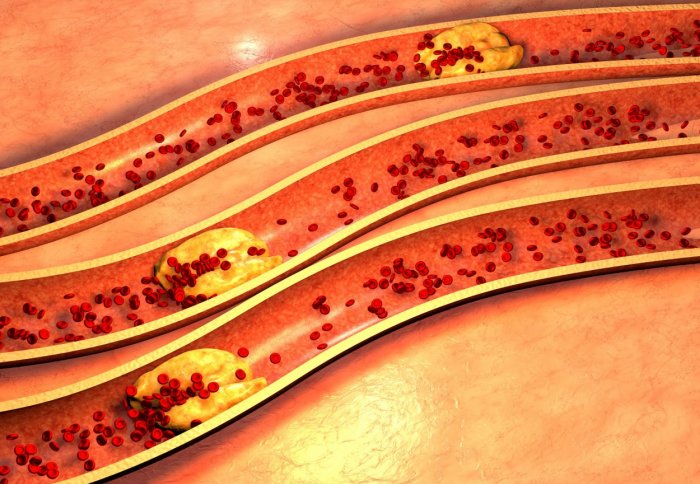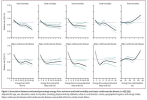HairySmurf
Well-Known Member
- Messages
- 174
- Type of diabetes
- Type 2
- Treatment type
- Tablets (oral)
Confirmation bias, according to the Wikipedia definition, is the tendency to search for, interpret, favour, and recall information in a way that confirms or supports one's prior beliefs or values.
 en.wikipedia.org
en.wikipedia.org
It is a universal aspect of human reasoning and goes a long way in explaining various phenomenon from extreme political polarisation, to resistance amongst the scientific community to contrary ideas, to belief in the power of astrology and the paranormal. Once we become emotionally invested in an idea it becomes extremely difficult to shake our beliefs. Emotional investment is reinforced when our beliefs are challenged. On some level, we take it personally.
In the UK context a very good example is polarisation surrounding the Brexit referendum. At one extreme Brexit was portrayed as an imminent economic catastrophe of dire proportions, while at the other extreme it was portrayed as an amazing opportunity that would lead the UK into a new golden age. It is only when people became less emotionally invested in their beliefs and the realities smacked them in the face that extreme attitudes on both sides began to soften and shift.
It’s easy to spot from a detached distance, when an observer isn’t invested in either side of an issue. According to polls around 30% of Americans still believe the 2020 presidential election was rigged in favour of Joe Biden. To say the evidence for that belief is thin and shaky is a vast understatement. Similarly, according to the most recent polling I can find on the subject, around 16% of Americans still believe that the government, media, and financial worlds are controlled by Satan-worshipping paedophiles. This is the core tenet of QAnon. It’s not as if QAnon believers are in some way more stupid than the average person. They just fell down a misinformation rabbit hole and stayed there, largely due to a constant stream of new conspiracy theories which they are encouraged to ‘research for themselves’, under the heavy influence of confirmation bias.
Where am I going with this? Well, the first thing I did when I became curious about low carb diets as a way to manage my diabetes was to check out the Wikipedia page:

 en.wikipedia.org
en.wikipedia.org
On this page are references to long term risks associated with such a diet, specifically cardiovascular disease, stroke, and various cancers (references 30 and 46). I began checking out this forum hoping to find expertise in managing these possible risks – long term low carb best practise tips basically. What I found instead was flat-out denial that these risks might exist in the first place; denial that these health conditions had anything to do with diet at all. More than that I found denial that medication that might help a person manage some of those risks, specifically statins, had any tangible benefit. Meanwhile, back in the real world, articles like this one are not hard to find:

 www.imperial.ac.uk
www.imperial.ac.uk
Last night I found myself deeply, viscerally disgusted with a thread on this forum along these lines and I realized that I’ve become biased. I can no longer investigate a low carb diet and any potential long term health effects with an open mind and without confirmation bias steering me away. It’s done, mind closed, perhaps forever. What did it was not some study or expert who could prove that low carb in the long term was unhealthy. What did it was coming to the stark realization that there is no advocate expert on the low carb lifestyle who is not also an expert in denying any potential long term consequences in a very selective, blatantly biased way. Everything I see and read on the subject, written by staunch advocates on this forum and elsewhere, now screams rabbit hole. It’s a shame, because I don’t question for a second that a low carb lifestyle has many excellent benefits for a Type 2 Diabetic. A little more balance and some acceptance that nobody has all the long term answers would have gone a long way.
Confirmation bias - Wikipedia
It is a universal aspect of human reasoning and goes a long way in explaining various phenomenon from extreme political polarisation, to resistance amongst the scientific community to contrary ideas, to belief in the power of astrology and the paranormal. Once we become emotionally invested in an idea it becomes extremely difficult to shake our beliefs. Emotional investment is reinforced when our beliefs are challenged. On some level, we take it personally.
In the UK context a very good example is polarisation surrounding the Brexit referendum. At one extreme Brexit was portrayed as an imminent economic catastrophe of dire proportions, while at the other extreme it was portrayed as an amazing opportunity that would lead the UK into a new golden age. It is only when people became less emotionally invested in their beliefs and the realities smacked them in the face that extreme attitudes on both sides began to soften and shift.
It’s easy to spot from a detached distance, when an observer isn’t invested in either side of an issue. According to polls around 30% of Americans still believe the 2020 presidential election was rigged in favour of Joe Biden. To say the evidence for that belief is thin and shaky is a vast understatement. Similarly, according to the most recent polling I can find on the subject, around 16% of Americans still believe that the government, media, and financial worlds are controlled by Satan-worshipping paedophiles. This is the core tenet of QAnon. It’s not as if QAnon believers are in some way more stupid than the average person. They just fell down a misinformation rabbit hole and stayed there, largely due to a constant stream of new conspiracy theories which they are encouraged to ‘research for themselves’, under the heavy influence of confirmation bias.
Where am I going with this? Well, the first thing I did when I became curious about low carb diets as a way to manage my diabetes was to check out the Wikipedia page:

Low-carbohydrate diet - Wikipedia
On this page are references to long term risks associated with such a diet, specifically cardiovascular disease, stroke, and various cancers (references 30 and 46). I began checking out this forum hoping to find expertise in managing these possible risks – long term low carb best practise tips basically. What I found instead was flat-out denial that these risks might exist in the first place; denial that these health conditions had anything to do with diet at all. More than that I found denial that medication that might help a person manage some of those risks, specifically statins, had any tangible benefit. Meanwhile, back in the real world, articles like this one are not hard to find:

Statins reduce deaths from heart disease by 28 per cent, says longest ever study | Imperial News | Imperial College London
The study focused on men with high levels of 'bad' cholesterol and no other risk factors or signs of heart disease
Last night I found myself deeply, viscerally disgusted with a thread on this forum along these lines and I realized that I’ve become biased. I can no longer investigate a low carb diet and any potential long term health effects with an open mind and without confirmation bias steering me away. It’s done, mind closed, perhaps forever. What did it was not some study or expert who could prove that low carb in the long term was unhealthy. What did it was coming to the stark realization that there is no advocate expert on the low carb lifestyle who is not also an expert in denying any potential long term consequences in a very selective, blatantly biased way. Everything I see and read on the subject, written by staunch advocates on this forum and elsewhere, now screams rabbit hole. It’s a shame, because I don’t question for a second that a low carb lifestyle has many excellent benefits for a Type 2 Diabetic. A little more balance and some acceptance that nobody has all the long term answers would have gone a long way.




